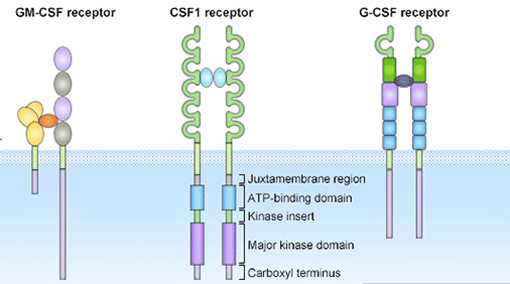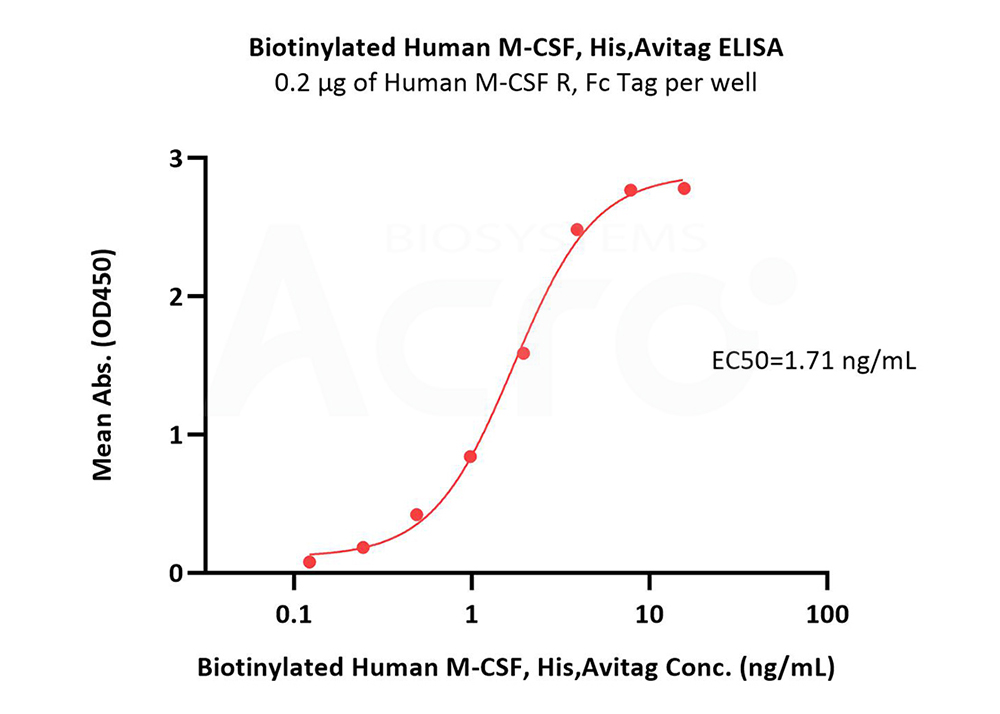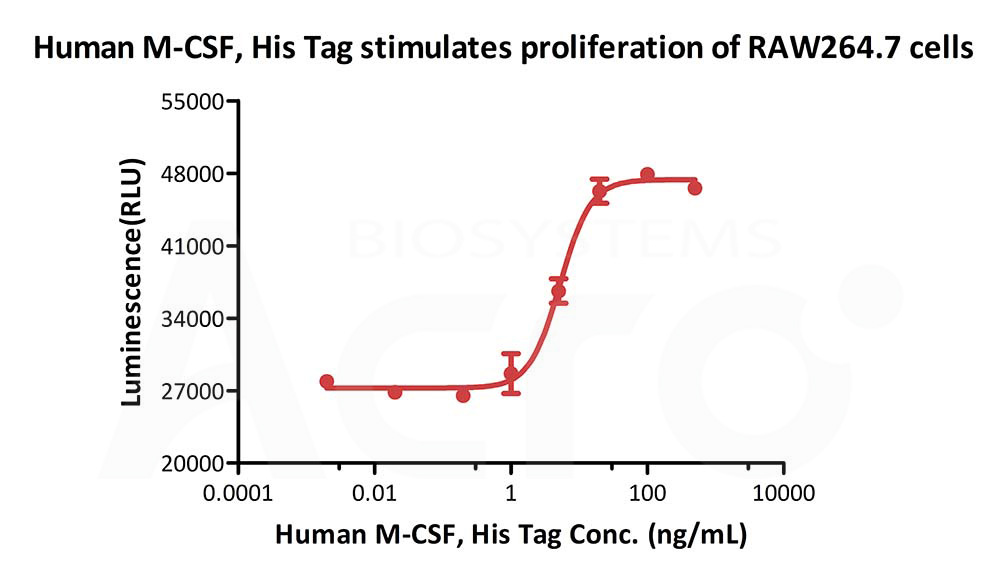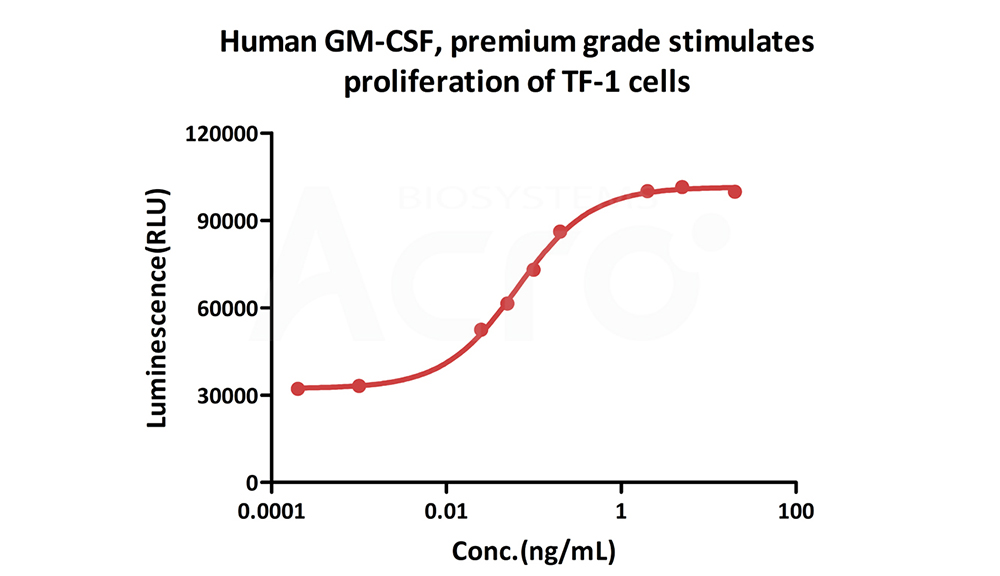 Limited Edition Golden Llama is here! Check out how you can get one.
Limited Edition Golden Llama is here! Check out how you can get one.  Limited Edition Golden Llama is here! Check out how you can get one.
Limited Edition Golden Llama is here! Check out how you can get one.
 Offering SPR-BLI Services - Proteins provided for free!
Offering SPR-BLI Services - Proteins provided for free! Get your ComboX free sample to test now!
Get your ComboX free sample to test now!
 Time Limited Offer: Welcome Gift for New Customers !
Time Limited Offer: Welcome Gift for New Customers !  Shipping Price Reduction for EU Regions
Shipping Price Reduction for EU Regions
> Colony-Stimulating Factors and Receptors


Schematic diagram of CSFs and their receptor families
Macrophage colony-stimulating factor 1 (M-CSF) binds with its receptor (M-CSF R) to promote monocyte survival, promotes monocyte survival, monocyte-to-macrophage conversion, and macrophage proliferation. It also initiates and enhances macrophage killing of tumor cells and microorganisms, modulates macrophage release of cytokines and other inflammatory modulators.
Granulocyte-macrophage colony stimulating factor 2 (GM-CSF), through binding to its receptor GM-CSF R, promotes cell proliferation, survival, differentiation and other biological effects. Aberrant expression of GM-CSF leads to excessive inflammation, pain, chemotaxis and tissue damage, which promotes the production of other pathogenic and inflammatory cytokines.
Granulocyte colony-stimulating factor (G-CSF) mainly acts on the proliferation, differentiation and activation of hematopoietic cells of the neutrophil lineage. In vitro, it stimulates neutrophil precursors of bone marrow hematopoietic cells to differentiate and proliferate to form mature granulocyte colonies. This improves phagocytosis of neutrophils and promotes superoxide production.
![]() HEK293 expressed, close to natural conformation
HEK293 expressed, close to natural conformation
![]() High biological activity verified by SPR/ BLI/ Cell Assays
High biological activity verified by SPR/ BLI/ Cell Assays
![]() Strict quality control to guarantee high batch-to-batch consistency
Strict quality control to guarantee high batch-to-batch consistency
![]() ELISA as QC test to guarantee high quality, free protocol shared
ELISA as QC test to guarantee high quality, free protocol shared
Our premium-grade growth factors, including CSFs, have:
| Molecule | Cat. No. | Species | Product Description | Preorder/Order |
|---|---|---|---|---|
| M-CSF | MCF-H5247 | Human | Human M-CSF / CSF-1 Protein, His Tag | |
| MCF-H82E6 | Human | Biotinylated Human M-CSF / CSF-1 Protein, His,Avitag™ | ||
| M-CSF R | CSR-H5228 | Human | Human M-CSF R / CSF1R / CD115 Protein, His Tag (HPLC verified) | |
| CSR-H5258 | Human | Human M-CSF R / CSF1R / CD115 Protein, Fc Tag, low endotoxin | ||
| CSR-H82E0 | Human | Biotinylated Human M-CSF R / CSF1R / CD115 Protein, Avitag™,His Tag | ||
| CSR-H5255 | Human | Human M-CSF R / CSF1R / CD115 Protein, Mouse IgG2a Fc Tag (MALS verified) | ||
| CSR-C52E1 | Cynomolgus | Cynomolgus M-CSF R / CSF1R / CD115 Protein, His Tag | ||
| CSR-C5252 | Cynomolgus | Cynomolgus M-CSF R / CSF1R / CD115 Protein, Fc Tag | ||
| CSR-M82E8 | Mouse | Biotinylated Mouse M-CSF R / CSF1R / CD115 Protein, Avitag™,His Tag | ||
| CSR-M52E7 | Mouse | Mouse M-CSF R / CSF1R / CD115 Protein, His Tag | ||
| CSR-M5256 | Mouse | Mouse M-CSF R / CSF1R / CD115 Protein, Fc Tag, low endotoxin | ||
| CSR-C82H3 | Canine | Canine M-CSF R / CSF1R / CD115 Protein, His Tag | ||
| CSR-R82H5 | Rabbit | Rabbit M-CSF R / CSF1R / CD115 Protein, His Tag | ||
| GM-CSF | GMF-H8214 | Human | Biotinylated Human GM-CSF Protein, epitope tag free, ultra sensitivity, primary amine labeling | |
| GM-CSF R alpha | GRA-H5255 | Human | Human GM-CSF R alpha Protein, Fc Tag | |
| GRA-H52H7 | Human | Human GM-CSF R alpha Protein, His Tag (SPR verified) | ||
| GMA-M52H3 | Mouse | Mouse GM-CSF R alpha Protein, His Tag | ||
| G-CSF | GCF-H5214 | Human | Human G-CSF Protein, premium grade | |
| G-CSF R | GCR-H5223 | Human | Human G-CSF R / CD114 Protein, His Tag | |
| GCR-H5250 | Human | Human G-CSF R / CD114 Protein, Fc Tag | ||
| GCR-H82E4 | Human | Biotinylated Human G-CSF R / CD114 Protein, Avitag™,His Tag (MALS verified) |

Immobilized Human M-CSF R, Fc Tag (Cat. No. CSR-H5258) at 2 μg/mL (100 μL/well) can bind Biotinylated Human M-CSF, His,Avitag (Cat. No. MCF-H82E6) with a linear range of 0.1-2 ng/mL (QC tested).

Human M-CSF, His Tag (Cat. No. MCF-H5247) stimulates proliferation of RAW264.7 cells. The EC50 for this effect is 4.40-5.27 ng/mL (Routinely tested).

Human GM-CSF, premium grade(Cat. No. GMF-H4214) stimulates proliferation of GM-CSF-activated TF-1 cell. The specific activity of Human GM-CSF, premium grade is > 1.0ⅹ10^7 IU/mg , which is calibrated against human GM-CSF WHO International Standard (NIBSC code: 88/646) (QC tested).
This web search service is supported by Google Inc.
